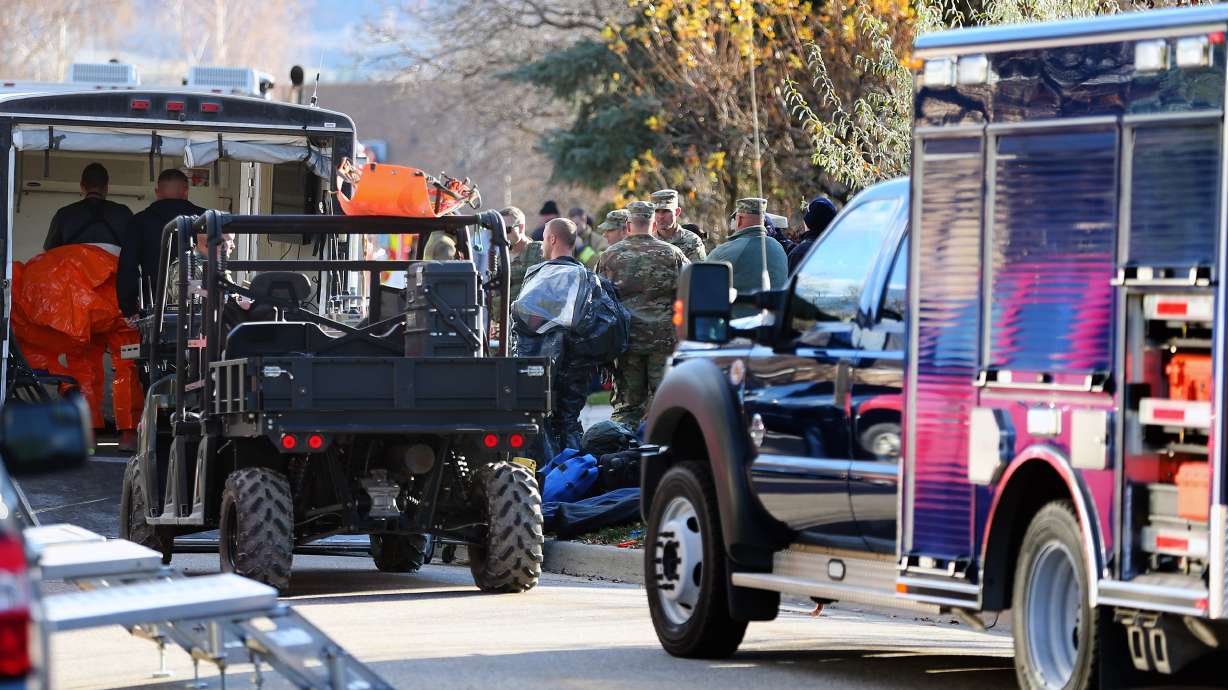Estimated read time: 3-4 minutes
This archived news story is available only for your personal, non-commercial use. Information in the story may be outdated or superseded by additional information. Reading or replaying the story in its archived form does not constitute a republication of the story.
SALT LAKE CITY — Federal prosecutors and defense attorneys disagree over whether gruesome photos of a man who died after snorting fentanyl-laced fake painkillers should be allowed in the upcoming trial of the Cottonwood Heights man who allegedly made and sold the drugs.
A close-up of a man identified as R.K. showing his face smeared with blood and mucus and two other pictures are necessary for a jury to decide wether Aaron Michael Shamo is responsible for his death, according to court documents.
"None of the pictures evokes an overpowering emotional response. There are no open, gaping wounds. There is little blood," Michael Gadd, special assistant U.S. attorney, wrote.
But defense attorneys, including Greg Skordas, argue the photos are "extremely prejudicial" and would prevent Shamo from getting a fair trial.
"There is a very real possibility of undue jury hostility toward Mr. Shamo where the claims being made involved the death of an individual," the attorneys wrote. "It invites a jury to convict based on broad concepts of community safety, sympathy, fear and passion."
Whether to allow the photos is among several issues a U.S. District Court judge is considering before Shamo's scheduled four-week trial starts next month.
Prosecutors allege in a 13-count indictment that Shamo intentionally and knowingly distributed a substance containing fentanyl, the use of which resulted in the June 13, 2016, death of R.K.
Shamo, 29, also is charged with continuing criminal enterprise, importation and manufacturing of a controlled substance, possession of drugs with intent to distribute, drug trafficking and money laundering. He is being held in the Salt Lake County jail.
Six codefendants in the case — none of whom were charged with distributing fentanyl resulting in death — have reached plea deals with prosecutors.
Prosecutors allege Shamo ran an international drug trafficking organization that imported fentanyl and alprazolam from China and made fake oxycodone pills and Xanax tablets. The drugs were sold on the darknet — an area of the internet often used for illegal activity — to thousands of people all over the country, at one point raking in $2.8 million in less than a year, court document say.
R.K. and his roommate, identified in court documents as G.L., ordered fake oxycodone pills from Shamo's AlphaBay store on June 6, 2016. The shipment arrived five days later, according to court records.
Late on June 12, R.K. crushed and snorted two of the pills in his room and exhibited effects immediately before falling asleep in his bed, court papers say. G.L. rolled him into the "recovery" position to prevent him from asphyxiating should he vomit during the night.
The next morning, G.L. found R.K. in his bed still in the recovery position and cold to the touch, according to court documents.
Court records say a toxicologist found alcohol, a cocaine metabolite, a cocaine cutting agent and fentanyl in R.K.'s blood. Doctors say the blood and mucus on his face are signs of opioid intoxication, prosecutors wrote.
Prosecutors say they pared down the number of available photos to three, and because there are only three, "there is little chance of overwhelming the jury with blood and gore."
One of the pictures shows R.K.'s body on the floor where paramedics moved him to try to save him. The third photo shows just his legs but includes the mailing envelope that contained the drugs and a battery and "toot-straw" he used to crush and snort the pills.
Defense attorneys contend the photos would likely lead a jury to make improper inferences about Shamo without giving proper weight to the actual evidence connecting him to R.K.'s death. They say there is no evidence that Shamo intended to hurt anyone.









